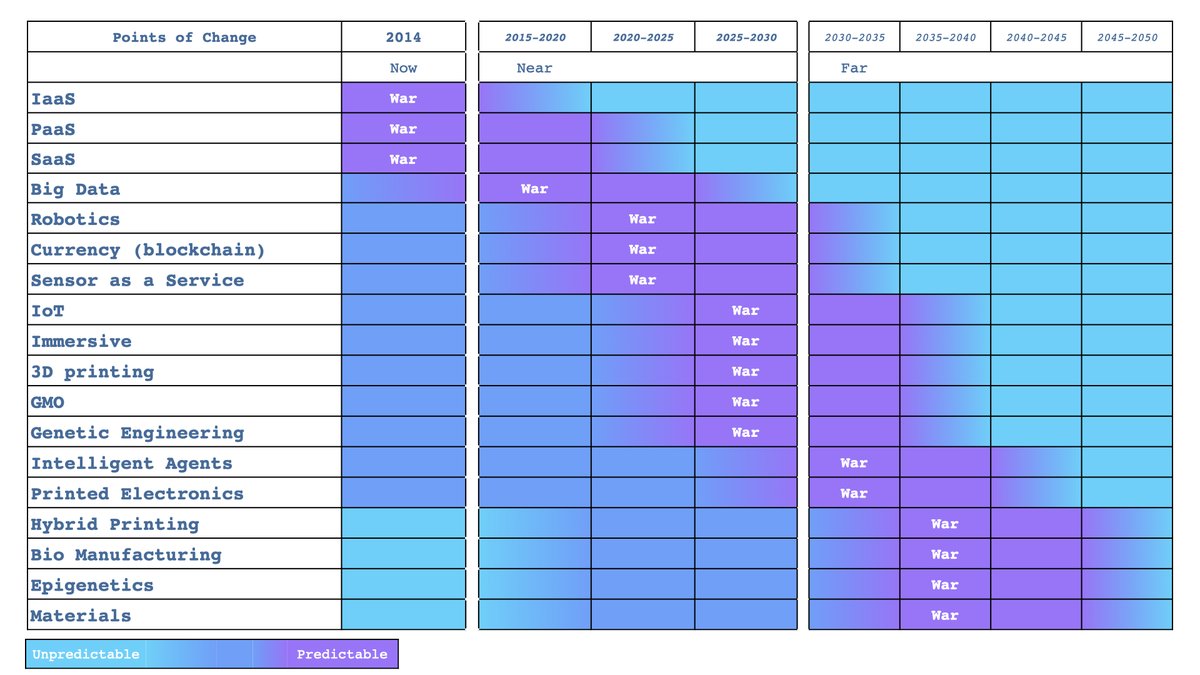Those born in the 1890s experienced electrification, telephone, radio, television, nuclear age, penicillin, two world wars, commercial flight, computer age and a moon landing. By the 60s we had AI, VR and 3D printing.
Today, we have the internet / www and have improved stuff.
Today, we have the internet / www and have improved stuff.
Is it me, or is human progress slowing down? Great breakthroughs, moments of change, and radical transformations seem like a thing of the past. What we call "revolutions" in industry today seems mostly a marketing slogan.
If you think back to 1957 and the Mark I Perceptron machine that was built at Cornell, then consider the changes in the previous 60 years ... you can't help but think they would be bitterly disappointed with how slow we have progressed in the following 60 years.
Could you imagine the conversation with Frank Rosenblatt about ChatGPT ... he'd probably be amazed until we said it was built in 2022. They were expecting us to be living on other planets by now.
14 years ago, I discussed a "peace, war and wonder" cycle of how things evolve ... (old mapping format) ... 

This was all based upon CS Hollings Adaptive Renewal cycle ... it's something I discussed at my first LEF talk in late 2009 (which was prior to joining) ... 

I finally got to examine this in 2013/2014, looking at how waves of technology were evolving and reaching this point of industrialisation ... 

... what we perceive of as rapid change are multiple waves of industrialising technology. We forget about the long path it takes for the technology to reach that stage but instead notice that things are hitting at the same time - AI / VR / 3d Printing etc.
I pick those examples because AI / VR / 3D printing all started in the 1960s or before.
I suspect that today seems rapid because multiple waves, that were started long ago, are industrialising at the same time.
I suspect that today seems rapid because multiple waves, that were started long ago, are industrialising at the same time.
i.e. our perception of change (and hence our view of progress) is neither uniform nor linear. It may take 30-50 years for a technology to industrialise but multiple waves of industrialising technology hitting at roughly the same time give us a sense that change is more rapid.
So ...
1) Don't simply assume that progress is accelerating ... that sense of rapid change could be the result of multiple waves of industrialising technology hitting at the same time rather than an underlying change.
1) Don't simply assume that progress is accelerating ... that sense of rapid change could be the result of multiple waves of industrialising technology hitting at the same time rather than an underlying change.
2) Don't dismiss how radical change was in the past. It had moments in time with multiple waves of industrialising technology that would have been seen as groundbreaking as many think AI/internet is today.
3) Don't extrapolate from today until tomorrow. Otherwise, you'll end up like a 1950s person wondering why we aren't living on other planets and why flying cars aren't standard.
dX: Does anything accelerate progress?
Me: I did some work on this long ago. It appears that the industrialisation of communication mechanisms - the printing press, postage stamp, telephone, the internet etc. - accelerates all subsequent evolution.
Me: I did some work on this long ago. It appears that the industrialisation of communication mechanisms - the printing press, postage stamp, telephone, the internet etc. - accelerates all subsequent evolution.
dX: What other factors?
Me: The strongest factor I could find was the industrialisation of communication mechanisms. There are short-term impacts, like necessity/crisis, but that didn't seem to have a long-term impact.
Me: The strongest factor I could find was the industrialisation of communication mechanisms. There are short-term impacts, like necessity/crisis, but that didn't seem to have a long-term impact.
You'll find it in my list of economic patterns ... which I need to update soon with a few others I've found. 

• • •
Missing some Tweet in this thread? You can try to
force a refresh








